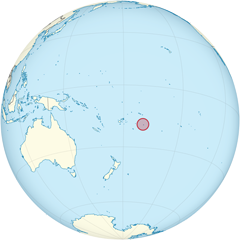Shadow libraries
By Guillaume Filion, filed under
journals,
shadow libraries.
• 15 September 2014 •
 In Jorge Luis Borges’s short fiction Tlön, Uqbar, Orbis Tertius, the narrator discovers by accident the existence of a secret encyclopaedia. In this story more than in the others, Borges added many details that are actually true, in such a way that it is hard to tell the reality from the fiction. Needless to say, most would think that the secret encyclopaedia is pure fiction... and they would be wrong. Secret encyclopaedias do exist and they go by the name of “shadow libraries”.
In Jorge Luis Borges’s short fiction Tlön, Uqbar, Orbis Tertius, the narrator discovers by accident the existence of a secret encyclopaedia. In this story more than in the others, Borges added many details that are actually true, in such a way that it is hard to tell the reality from the fiction. Needless to say, most would think that the secret encyclopaedia is pure fiction... and they would be wrong. Secret encyclopaedias do exist and they go by the name of “shadow libraries”.
Academic publishing
In the course of developing PubCron (a personalized academic literature watch), I learned that PubMed references more than 2,000 new articles daily. For the vast majority of those papers, the authors pay about $1,000 as publication fees. In the bio-medical field alone, this is a $2 million gift to the publishing industry. Every day.
Gift is not the proper term. This money goes to scientific editors and in such amount, it should be sufficient to sustain about 20,000 professional editors. An editor working full time would publish 3 papers per month... not an unreasonable estimate considering that only a fraction of the manuscripts are published. This means that the costs of the peer review process, however high, are paid for (reviewers accept to work for free, as you probably know). Then why are most articles behind paywalls?
Essentially, it is about profit. More than 14,000 researchers have signed the cost of knowledge bill against the Dutch giant of academic publishing Elsevier. For most, the company is making profit by preventing the diffusion of knowledge. As Mike Eisen reminds us on his blog, Elsevier is hardly the only bad actor in the field. Researchers have been protesting for a long time against the major publishing companies, but little action has been taken.
Library.nu
 In this context, some have decided to play Robin Hood. They rip the publishers and store the scientific manuscripts in open access “shadow libraries”. The first shadow library to reach maturity was Library.nu, also referred to as gigapedia and ebooksclub. The domain .nu stands for Niue, a Polynesian island in the middle of the Pacific, where the pirates had registered the website. You could browse ebooks, once you found what you are looking for, you were redirected to the website that actually hosted the content.
In this context, some have decided to play Robin Hood. They rip the publishers and store the scientific manuscripts in open access “shadow libraries”. The first shadow library to reach maturity was Library.nu, also referred to as gigapedia and ebooksclub. The domain .nu stands for Niue, a Polynesian island in the middle of the Pacific, where the pirates had registered the website. You could browse ebooks, once you found what you are looking for, you were redirected to the website that actually hosted the content.
The site was closed in 2012. Library.nu attracted the attention of several publishers who started a legal action. It took quite some time for the investigators to identify the people behind Library.nu, they were untraceable through the web. Changing strategy, they made a donation to Library.nu and followed the money, which led them to the owners. The story is told in detail in the Huffington post.
Library.nu specialized in providing expensive academic books for free in all fields of expertise.
[Aleph]
For some time, it looked like the defenders of the copyrights had won. The suicide of the open access activist Aaron Swartz following his indictment on charges of fraud added insult to injury. But then came [Aleph].
[Aleph] is not the real name of this shadow library, but following Balázs Bodó talking on re:publica, I will use this pseudonym to protect it. Unlike Library.nu, the core business of [Aleph] is academic articles. The catalogue consists of 28 million articles (the content of Library.nu was added in 2011), with approximately 20,000 additions each month. Users are invited to upload reprints. So far, it haven’t found a single article of interest to me that I could not download through an [Aleph] mirror.
[Aleph] is built for neither profit nor fame. No advertisement throughout, the only way the maintainers seem to earn money is from donations. Of course, they have learned the lessons from Library.nu, you can only donate bitcoins, which is a popular digital currency (for further information about bitcoins, and whether it provides anonymity or not, see the discussion below).
Epilogue
Perhaps the biggest lesson that we can learn from [Aleph] (and other endeavors such as arXiv) is that maintaining a library with most of the academic knowledge can be done by very few people on a tiny budget. Internet changes the deal. The work of private publishing companies, once necessary for the diffusion of knowledge has become a hindrance. As Aaron Swartz expresses vividly in the Guerilla Open Access Manifesto,
There is no justice in following unjust laws.
... and breaking them is civil disobedience.
« Previous Post | Next Post »
blog comments powered by Disqus

